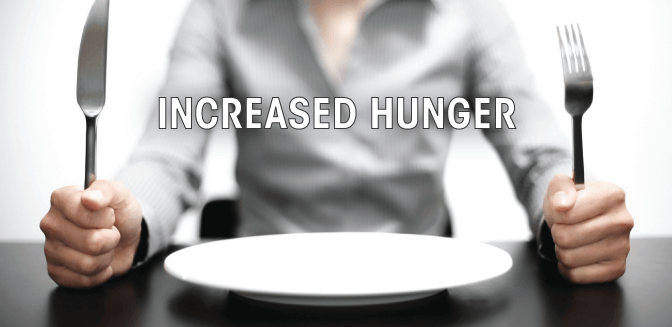Does Birth Control Make You Gain Weight?
By Kate Horney
There have been countless times over the past 10+ years working with women that I’ve talked with women who are frustrated that they simply can’t lose weight. Many come to me in tears: they are consistent with their workouts, their nutrition is on point, and yet… they’re not reaching their goals.
Or even worse- they’re GAINING weight.
Calories in vs. calories out is NOT the whole picture when it comes to fat loss- especially for women.
There are many hormones at work when it comes to gaining or losing weight (READ: Are Your Hormones Making You Fat?), but today I want to specifically address hormones impacted by birth control and answer the question: does birth control make you gain weight?
The answer is yes and no.
Research has not come to a hard and fast answer to this question, but we do know that OCPs (oral contraceptive pills), HRT (hormone replacement therapy), hormone releasing patches, and IUDS use estrogen compounds that are NOT identical to estrogen made in the body.
This has the potential to cause problems with your body’s natural hormone production and hormone balance.
So when you’re asking the question: does birth control make you gain weight? There are 3 main factors to consider…
Increased Water Retention
First, you should know that if you notice an initial jump in weight after beginning to take hormonal birth control, it’s often a temporary side effect that’s due to fluid retention, not extra fat.
Birth control pills based on estrogen often cause bloating (water retention) because estrogen directly stimulates several compounds called renin-angiotensin from the kidneys that lead to fluid retention. The amount of fluid that is retained is directly proportional with the quantity of estrogen found in the pill.
Oral contraceptives that contain around 20 mcg of estrogen are recommended for women who want to avoid fluid retention.
Increased Hunger
Hormonal birth control (OCPs, HRT, etc) that uses synthetic hormones has been shown to increase ghrelin (your hunger hormone). In addition, estrogen supplementing is known to make your brain more sensitive to ghrelin, so even if you aren’t eating more, you’re FEELING the impact of this hunger hormone more strongly.
In addition to it’s impact on ghrelin, hormonal birth control has also been shown to decrease leptin levels. Leptin is the hunger hormone responsible for helping you to feel full, so this causes feelings of dissatisfaction after meals, often leading to overeating or eating more later.
Increased Fat Storage
Some oral contraceptives cause elevated insulin levels. Insulin is a storage hormone, so when your insulin levels rise and are higher for prolonged periods of time, your body is more likely to take the energy from the carbohydrates that you ingest and storage it as fat.
A study in the American Journal of Obstetrics and Gynecology found that women using the Depo-Provera shot gained an average of 11 pounds and increased their body fat by 3.4 percent over three years.
This side effect has been noted more often in women who have abnormal glucose metabolism (insulin resistance, etc) but this impact of insulin from birth control pills can predispose women taking some hormonal contraceptives long term to weight gain.
If you gain weight while taking birth control pills with more estrogen, I suggest talking to your doctor. If the gained weight exceeds 5 percent of your body weight, this may indicate that you have either an abnormal glucose metabolism or insulin resistance.
The good news is that if you do gain weight on hormonal birth control, you can consider changing the type of birth control that you use and be back on track with your weight loss goals. Personally, I recommend a non-hormonal alternative.
Non-Hormonal Alternatives
Most forms of birth control contain hormones. But if you’re looking for an alternative, there are a few that don’t.
Aside from prophylactics, getting your “tubes tied, ” and the obvious “Fertility Awareness Method” (aka chart your fertility cycle so you know when to avoid unprotected sex) the next most popular form of non-hormonal birth control is the copper IUD.
If you have further questions about this topic, I recommend talking to your doctor.
More helpful posts include:
Are you interested in hormones and how they impact fat loss?
Click HERE to join the Do Fitness Better Academy. Think of it as your “online fat loss school” where you’re learn all about hormonal topics like:
Lesson 1: Why Hormones Matter
Lesson 2: Progesterone – The partner of Estrogen
Lesson 3: Leptin – The Fuel Gage Hormone
Lesson 4: HGH – The Natural Fat Burning & Muscle Building Hormone
Lesson 5: Ghrelin – The Hour To Hour Hunger Hormone
Lesson 6: Estrogen – The Feminizing Hormone
Lesson 7: Insulin – The Storage Hormone
Lesson 8: Cortisol – the Stress Hormone



